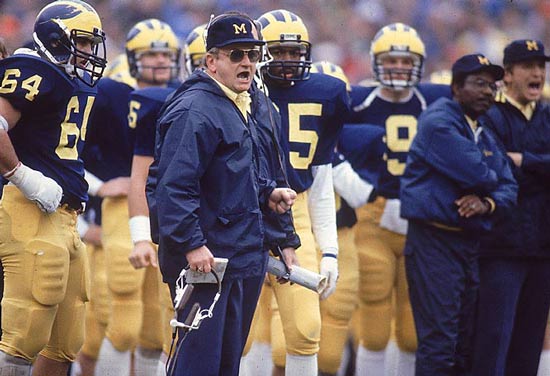6.0 Exceptional Teams—An Introduction

My wife is convinced that the teams I played football with for University of Michigan have reunions every year. Not true. The 1969 and 1971 Big Ten Championship teams under Coach Bo Schembechler have met every five years since the ten-year reunion, for a total of sixteen reunions so far; another is coming up soon. We brought national recognition to the university and earned trips to play in the Rose Bowl. Although we did not win the bowl games, the bond we forged on these teams has transcended details about who started, who was the star, who was walk-on, who was fast, and who was slow. Was it our success that brought us together, or was it our closeness that made us successful?
An Overview of the Building Blocks
For many people, success while on a team has deep meaning, whether from being part of a band, orchestra, or department that excelled.
Core Identity Requirements
There is a biological basis for the depth of meaning that comes from participating in a group effort in a caring and trusting environment: serotonin and oxytocin are activated, and in turn, deepen and reinforce the positive experience.
A Team is Only as Good as Its Leader
Over the years, we have learned that there is no single personality type of successful leader. In my early days as an athletics administrator, if there was a coaching position to fill, I thought we should pursue dynamic and inspirational individuals. I came to realize that there is no correlation between a loud and charismatic leader and team success. This is as true in business as it is in athletics. Today, the focus of our practice at FS/A is building leaders who intrinsically energize their teams to realize a shared vision, regardless of their natural behavior. That ability can come from the quiet, calm thinker as easily as from the more dynamic and expressive individual, if their heart is for the organization’s vision.
Techniques and Tools
In upcoming posts, we will look at techniques for relationship building, and we will introduce the Team Survey we use to assess how strong a team you may possess.
An Iconic Description of The Team
For now, I’d like to share Bo Schembechler’s iconic and inspiring message on “The Team” — it is his only publicly recorded talk to his University of Michigan Football teams.
We want the Big Ten championship and we’re gonna win it as a Team. They can throw out all those great backs, and great quarterbacks, and great defensive players, throughout the country and in this conference, but there’s gonna be one Team that’s gonna play solely as a Team.
“No man is more important than The Team. No coach is more important than The Team. The Team, The Team, The Team, and if we think that way, all of us, everything that you do, you take into consideration what effect does it have on my Team? Because you can go into professional football, you can go anywhere you want to play after you leave here. You will never play for a Team again. You’ll play for a contract. You’ll play for this. You’ll play for that. You’ll play for everything except the team, and think what a great thing it is to be a part of something that is, The Team. We’re gonna win it. We’re gonna win the championship again because we’re gonna play as team, better than anybody else in this conference, we’re gonna play together as a team.
“We’re gonna believe in each other, we’re not gonna criticize each other, we’re not gonna talk about each other, we’re gonna encourage each other! And when we play as a team, when the old season is over, you and I know, it’s gonna be Michigan again, Michigan.”
It has been enlightening, exciting, and enriching for me to learn that the principles we refined for the most successful athletic teams applied as well to teams in all organizations. The Foundation of Greatness Principles and Disciplines are how humankind was designed to work together; and as leaders, we need to understand them and how they support each other. Whether for survival or for winning, how we want to work together as a team for sustainable success is the same.
Leadership Questions
- When have you had the experience of being part of a successful team? What did that feel like? What do you think made that possible?
- What is more important in your organization: team success or Individual success? Where does the most attention go toward in your organization?
- What are the characteristics of some of the best team leaders you have known?
This post is part of series drawn from Fritz Seyferth’s upcoming book on the Foundation of Greatness.






